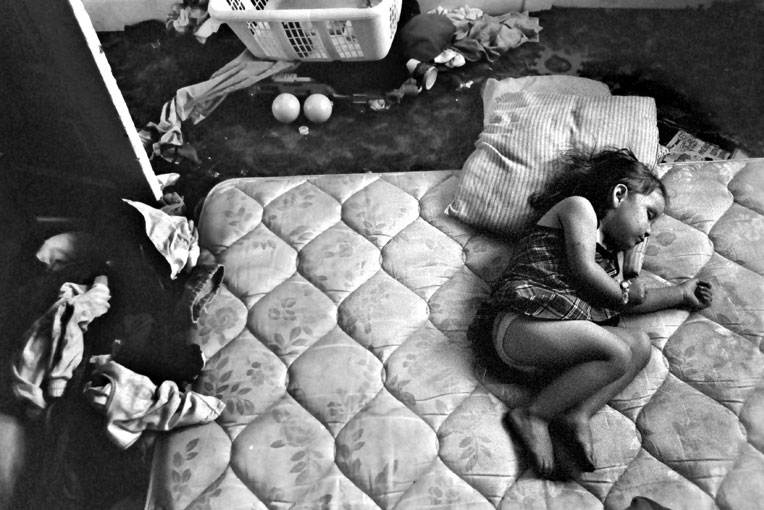
Following on from my post highlighting the appalling socio-economic conditions Canada’s native peoples live in comes this news via Vice webzine on the still developing “St. Anne’s” scandal:
“The Ontario Superior Court of Justice has ruled that the Canadian Federal Government has to disclose thousands of police documents concerning the torture of native children at St. Anne’s residential School in Fort Albany, Ontario. The infamous school—where children as young as six were disciplined in an electric chair—is, at least to this date, perhaps the most egregious example of the abuses inflicted upon children who were forced into the residential school system. The government has been withholding transcripts and documents related to a police investigation that took place when group of former students jointly filed their complaints in the early ‘90s. The Harper government and Aboriginal Affairs Minister Bernard Vaillancourt has cited “privacy concerns” as reason not to produce the documents, although it appears they may simply want to avoid the possibility of having to pay any compensation to the aging survivors.
In his ruling last Tuesday, Justice Paul Perell ripped into the government for their shrewd and insensitive treatment of abuse victims, showing once again that they’re unwilling to comply with their obligations in regards to land treaties or reconcile with any spirit of openness, authenticity, or healing.”
Read the full article including an interview with Fay Brunning who has been working on behalf of former students at St. Anne’s. More analysis here.
Reblogged this on seachranaidhe1.
LikeLike
I realize that values change over time, and how we view and treat the mentally ill, orphans, prisoners, etc., has evolved over the decades and centuries, but in what universe would disciplining children with electricity be deemed appropriate?
It’s nearly always those who are at a distinct social disadvantage who suffer from this sort of abuse, whether it be native children being mistreated in Canada or the US, blacks unwittingly being subjected to government testing in the US or women at Magdalene asylums being abused in Ireland. I’m sure the list is depressingly long.
I’d like to think that we’ve moved past this, but when governments balk at owning up to past evils it doesn’t bode well.
LikeLike
Indeed. In general I believe it is unfair to project back in time the social and moral codes we regard as the norm in the present. However there are events where one must question whether, even by the norms of the past, such things were ever regarded as acceptable. Electrocuting children as a form of discipline is clearly one of those things.
It is depressing that we still live with the casualness of abuse towards children, women and the vulnerable in society. Despite everything we have learned from the dreadful historical episodes you listed. The banality of evil and all that.
LikeLike
“…Aboriginal Affairs Minister Bernard Vaillancourt has cited ‘privacy concerns’ as reason not to produce the documents”
http://www.vice.com/read/the-government-has-been-forced-to-hand-over-documents-about-the-abuse-of-native-children-at-st-annes-residential-school
all sounds very familiar where “no priest, nun or brother can be named”
http://www.irishcentral.com/news/irish-church-child-abuse-a-horror-legacy-of-unwanted-famine-children-46082527-237643941.html
LikeLike
It is eerily familiar. Australia has similar historic cases. Of course little has changed: Australian education minister admits Aboriginal children ‘treated like rubbish’.
LikeLike